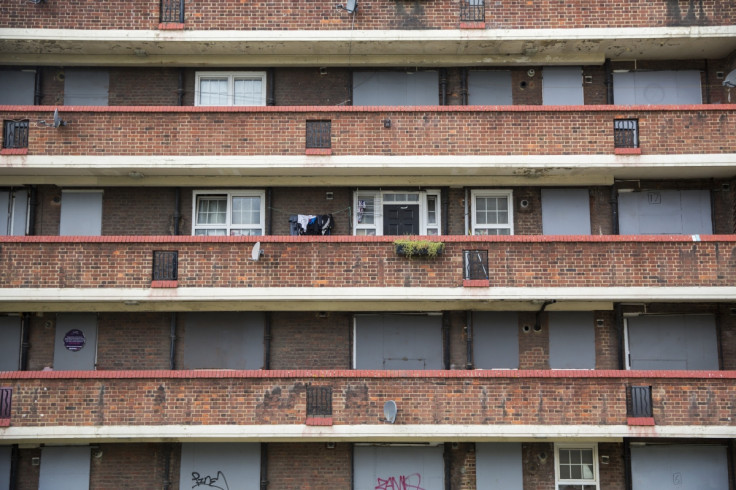UK housing: George Osborne giving foreign buy-to-let investors an advantage claim landlords

UK landlords claim the government is putting them at a disadvantage against wealthy foreign buy-to-let investors by hiking stamp duty for additional property purchases but exempting transactions involving 15 or more homes.
Chancellor George Osborne plans to introduce an extra 3% levy on top of the normal stamp duty rates for purchases of additional properties from April 1, 2016. The move, announced in the autumn statement and under consultation, will hit smaller buy-to-let investors and second home buyers.
Those buying 15 or more properties in one go will escape the extra tax because the government does not want to hinder investment in much-needed housebuilding, running at around half the level needed to meet demand, some of which relies on large-scale buy-to-let investors. But British landlords – the vast majority of who are small-scale – say this means rich foreign investors are being given preferential treatment. They are demanding an exemption from the new additional property levy if they invest in new homes.
It comes on top of Osborne's scrapping of a relief that allowed buy-to-let investors to offset their mortgage interest payments against their income tax bill. Osborne said his changes will raise an extra £1bn for the Treasury by 2021, some of which will go on housebuilding and regeneration of local communities. The government wants to increase the home ownership rate and has a number of schemes to help first-time buyers onto the market.
The chancellor's planned changes to stamp duty came as a bolt out of the blue.
"It is astonishing that a Conservative chancellor is leaving the way open for foreign investors and cutting opportunities for individual UK landlords," said Alan Ward, chairman of the Residential Landlords Association (RLA), which represents 40,000 members across England and Wales. "This additional assault on private landlords coming on top of changes to the taxation of rental income will only lead to reduced supply and higher rents. The chancellor's planned changes to stamp duty came as a bolt out of the blue.
"Regardless of the government's plans for home ownership, demand for rented housing is only set to increase. The government needs to understand that not everyone will be able to afford to buy a house or indeed want to, even if more houses are built. Its whole policy towards the private rented sector needs to change. If it does not, it will only make the housing crisis worse."
The RLA said in a statement it is "calling for all new build properties contributing to a net increase in the housing stock to be exempt from the stamp duty levy. A survey of over 1,100 landlords by the RLA found that 30% would be more likely to build new properties if this were the case."
A Treasury spokesman said the government is currently consulting the public on "how best to apply changes to stamp duty to ensure they work fairly and effectively". The consultation ends on February 1.
There has been a rush of buy-to-let investment ahead of April in a bid to beat the higher tax regime. The Council of Mortgage Lenders (CML) reported a 35% annual leap in gross buy-to-let lending in November 2015, when 23,300 mortgages were issued. The value of gross buy-to-let lending jumped 46% year-on-year in November to £3.5bn. Of this, £1.3bn was for house purchases, a 30% increase, and £2.1bn was for remortgages, up 61.5% as the prospect of an interest rate hike by the Bank of England draws nearer.
"This extra stamp duty raises almost a billion pounds by 2021 – and we'll reinvest some of that money in local communities in London and places like Cornwall which are being priced out of home ownership," Osborne said in his autumn statement after unveiling the extra levy.
"The funds we raise will help building the new homes. So this Spending Review delivers a doubling of the housing budget; 400,000 new homes, with extra support for London; estates regenerated; Right to Buy rolled-out. Paid for by a tax on buy-to-lets and second homes, delivered by a government committed to helping working people who want to buy their own home. For we are the builders."
© Copyright IBTimes 2024. All rights reserved.






